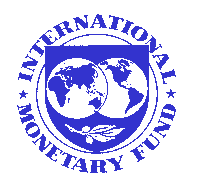Founded in 1945, the International Monetary Fund (IMF) bills itself as an organization of 184 countries working to foster global monetary cooperation, secure financial stability, facilitate international trade, promote high employment and sustainable economic growth, and reduce poverty.
While the IMF’s objectives are laudable, a study in the April issue of the Journal of Conflict Resolution provides compelling evidence that IMF intervention actually has a substantial negative impact on at least one important indicator of a country’s long-term economic vigor – the level of foreign direct investment in that country by private investors.
 “My analysis of economic trends in 68 countries over nearly three decades shows that countries signing IMF agreements attract about 25 percent less foreign direct investment than countries not under IMF agreements,” said Nathan Jensen, author of the study and assistant professor of political science in Arts & Sciences at Washington University in St. Louis.
“My analysis of economic trends in 68 countries over nearly three decades shows that countries signing IMF agreements attract about 25 percent less foreign direct investment than countries not under IMF agreements,” said Nathan Jensen, author of the study and assistant professor of political science in Arts & Sciences at Washington University in St. Louis.
Jensen is not alone in questioning the benefits of IMF programs. Recent studies have produced mixed and sometimes puzzling results regarding the impact of IMF programs on a nation’s balance of payments, current account balance and long-run economic growth. Jensen’s study is the first to focus closely on the impact of IMF agreements on foreign direct investment, a key barometer of how private investors perceive a country’s economic strength and stability.
After controlling for factors that commonly lead developing countries to seek IMF support, Jensen’s study suggests that international capital markets perceive IMF intervention as a negative development – one that raises serious concerns about the prudence of investing in new factories, office buildings, resorts, hotels and other business ventures so vital to a nation’s economic growth and development.
In the Washington University study, titled “Crisis, Conditions, and Capital: The Effects of International Monetary Fund Agreements on Foreign Direct Investment Inflows,” Jensen suggests that the IMF’s negative impact on foreign direct investment may be an overlooked but important factor in explaining why IMF’s attempts to spark economic growth are sometimes viewed as ineffective, if not counterproductive.
“These results are perplexing since the IMF, along with providing capital to countries in crisis, negotiates conditions on lending, encouraging domestic governments to make policy changes for fiscal solvency. Institutions that can provide credible commitments to private lenders and investors are generally associated with stronger macroeconomic performance. If IMF programs lock governments into market friendly policies, why is there so little evidence of improved macroeconomic performance?” he asks.
Jensen’s study does not attempt to establish a specific cause-and-effect relationship between IMF participation and the resulting decline in foreign direct investment, but he does explore various theories that may explain the linkage.
“One perplexing question is, if IMF programs have a negative impact on international capital markets, why would politicians sign these agreements?” Jensen asks. “One possibility is that IMF programs may have a negative impact on long-run economic performance, but they may also result in a short-term redistribution of income that is favorable to rich and powerful segments of the nation’s population.”
Other theories suggest that countries may sign onto IMF agreements because of the austerity conditions associated with IMF programs. Political leaders could then use the IMF as a scapegoat for unpopular policies, such as the restructuring of public finances. Although entering into an IMF agreement may have serious long-term economic costs, developing nations may find it too difficult to pass up short-term support during a financial crisis.
Regardless of factors driving their decisions, Jensen’s research provides strong evidence that developing countries pay a serious price when they take advantage of IMF assistance.
“Countries in economic crisis that turn to the IMF for support will in fact inhibit their ability to attract multinational investors. Countries weathering a financial crisis will attract less foreign direct investment inflows if they sign IMF agreements,” he concludes.